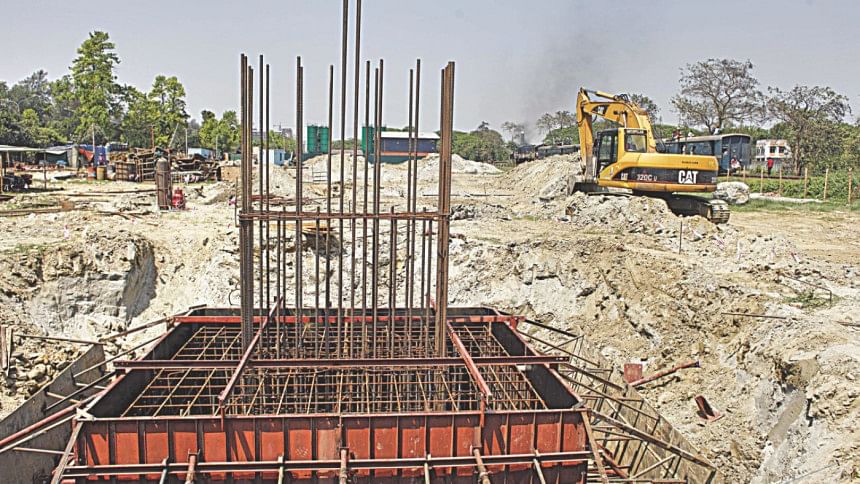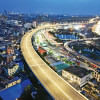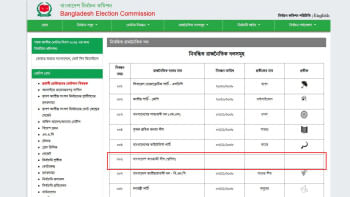By 2021 maybe

Under the original plan, the country's first-ever elevated expressway to connect the capital's north with the south was to complete in 2014. But the deadline was stretched time and again as the construction company failed to arrange funds for the Tk 8,940-crore project.
Some of the piling works are underway, and the construction of the main expressway is likely to begin after May 26, when the government is planning to sign a revised deal with the construction firm, Ital-Thai Development Public Construction Limited.
The company is expecting to get the fund next month to start the main work, an official of the road transport and bridges ministry told The Daily Star last night.
Officials of the company were not available for confirmation.
Once the fund is arranged and a revised deal is signed, the construction of the expressway would go on in full swing, said officials involved in the project.
However, the project might take at least five years to complete, they added.
According to a deal signed between the government and Ital-Thai in January 2011, the 21-km expressway from airport to Kutubkhali on Dhaka-Chittagong highway was scheduled to be completed in three and a half years.
Prime Minister Sheikh Hasina laid the foundation stone in April, 2011. In the last five years, the government could only acquire some land, while the contractors began piling works in August last year.
Ital-Thai, a partner in the first public private partnership (PPP) project, signed a $1.062 billion agreement with China Railway Construction Corporation (CRCC) in August 2014 after it failed to find fund.
Project Director Mohammad Ferdous told The Daily Star that the CRCC and Ital-Thai assured them of managing fund by April. “An announcement in this regard will be made very soon.”

Contacted, transport expert Prof Shamsul Hoque of Buet, who is giving technical support to the expressway project, said he also heard about getting fund. “The contractors are spending money for piling works, which indicates that they are serious about the project. The expressway construction will get momentum once the fund problem is over,” he said.
Asked about the delay in getting fund, he said financiers did not want to invest if there were uncertainty or confusion over a project's viability. “Investors always think about making profit out of the investment. So you must give them confidence,” he explained.
Prof Hoque said the route design of the expressway would be slightly modified to reduce land acquisition complexities and avert conflict with other projects.

Meanwhile, the government too failed to complete land acquisition and remove structures along the route that will run through the existing rail track. There will be 31 ramps to get on and get down from the expressway.
It will be built in three phases -- airport to Banani, Banani to Moghbazar, and lastly Moghbazar to Kutubkhali.
Land acquisition for the first phase (7.5km stretch from airport to Banani) was done with the government fund, while construction of 90 piles, out of 810, was completed with the contractors' money, project officials said.
Land acquisition for the second phase (5.85km from Banani to Moghbazar) also began recently, while that for the third phase (6.43km from Moghbazar to Kutubkhali) is yet to begin.
Under the agreement, Ital-Thai will manage finance, construct, operate and maintain the expressway. The concession period will be 25 years, including 42 months of the construction period.
There will be 11 toll plazas, five of them above the ground. Toll for end-to-end journey on the expressway will be Tk 125 for cars, jeeps, microbuses and light trucks. The rate will be double for buses, four times for six-wheel trucks and five times for above six-wheel trucks, according to the initial estimate.
However, the rates will now be re-fixed given the delay in the construction.
Visiting the project area last month, Road Transport and Bridges Minister Obaidul Quader said more than 10 percent of the piling works were done and hoped that the construction of the first phase will be completed by 2019.
Once complete, the expressway would significantly ease the capital's traffic congestion.

 For all latest news, follow The Daily Star's Google News channel.
For all latest news, follow The Daily Star's Google News channel. 







Comments